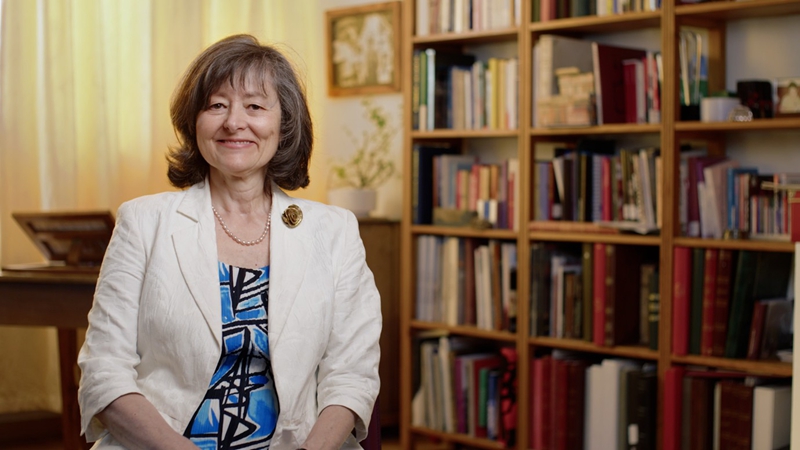




- BRNN
- BRI News
- BRNN News
- Database
Official Documents Polices and Regulations
Inter-government Documents International Cooperation BRI Countries
Business Guide Economic Data BRI Data
Trade
Investment Projects Latest projects
Cases - Content Pool
Summer in Madrid, the lively capital of Spain, is a season of intense heat, vibrant light, and abundant life. At the Autonomous University of Madrid, People's Daily Online met with Professor Taciana Fisac, a distinguished translator, linguist, and writer. As a professor of Chinese language and literature, Fisac is passionate about encouraging more students in Spain to learn Chinese and making China-related education more accessible. Her commitment led her to establish the Centre for East Asian Studies at the Madrid-based university in 1992. For her, learning the Chinese language is key to truly understanding the nation's culture.

Taciana Fisac (Photo/Patrick Shead-Simmonds)
Fisac's first trip to China came in 1978, when she served as a translator for Spanish journalists covering the official visit of King Juan Carlos I. However, her cultural and linguistic connection to China began several years earlier through her father. As an architect with a fascination for Asia, he returned from his travels across the continent convinced of China's future global importance. "Instead of just learning English," he told her, "why not learn Chinese?" It was a suggestion that changed Fisac's life.
By the late 1970s, Fisac was immersing herself in Chinese literature, which she saw as essential to understanding a society in transition. Literature offers a deeper immersion into Chinese culture and people, she explains, adding that her love for translation lies in the challenge of not only reading texts deeply, but also uncovering the unspoken layers of meaning.
Her first major translation project was Ba Jin's renowned novel "Family (Jia)," which follows the lives and marriages of three brothers in a wealthy Chinese household. After completing the translation, Spanish publishers requested that she shorten the book, which she found uncomfortable. She respectfully wrote to Ba for permission, and to her surprise, he replied warmly: "No problem at all. You can do whatever you want." Later, she learned that even within China, "Family" had been published in several edited versions.
Fisac also translated Qian Zhongshu's "Fortress Besieged (Wei Cheng)," a literary classic of modern China. During a visit to Beijing, she had the opportunity to meet both Qian and his wife, the renowned translator Yang Jiang, who is celebrated for her Chinese translation of the Spanish classic "Don Quixote." Fisac speaks with admiration towards the couple's deep knowledge of Chinese and Western cultures.
It was while translating Qian's work that Fisac began to question the conventional way Chinese grammar was taught in the West. She realised that the Chinese language doesn't follow the typical subject–verb–object structure taught in many textbooks. After more than 30 years of translating and teaching Chinese, she wrote her own book on Chinese grammatical structure called "Fundamental Structures of the Chinese Language". Inspired by linguist Zhao Yuanren's (Yuen Ren Chao) theory that Chinese follows a topic–comment structure, she expanded on this concept through her work, which has now been published in Spanish, English, and Italian. Moving forward, Fisac is eager to share and develop her ideas further with Chinese scholars worldwide.
Fisac is also embarking on a new project exploring the history of modern Chinese literature. She hopes to blend academic analysis with personal reflections, drawing on her unique experiences and long-standing connections with prominent figures in China's literary scene. She aims to situate these authors and their works within a broader historical context, an approach that she points out remains relatively underexplored in current scholarship.
"It's very easy to connect with Chinese people because I love the Chinese language," Fisac says. "The language and writing system are both incredibly beautiful." For her, learning Chinese opens the door to understanding the spirit of Chinese culture. Visiting China, researching the language, and teaching university students are not just part of her profession but foundational to her life.

Tel:86-10-65363107, 86-10-65368220, 86-10-65363106